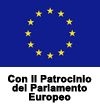L'UNIONE EUROPEA (UE) INTENSIFICA LA LOTTA ALLA CRIMINALITÀ AMBIENTALE
Autore: Dott.ssa Laura De Rose, Vice Direttore Foroeuropa
Il 15 dicembre, la Commissione europea ha pubblicato importanti proposte legislative per rafforzare la tutela dell’ambiente attraverso il diritto penale, nonché nuove politiche di ampio raggio al fine di migliorare l’applicazione del diritto penale ambientale negli Stati membri e promuovere la cooperazione internazionale.
Questo articolo descrive i contenuti essenziali di queste proposte, in particolare la proposta di direttiva sulla tutela penale dell'ambiente che sostituisce la direttiva del 2008, e la recente comunicazione della Commissione sul tema della lotta alla criminalità ambientale. Questi documenti sono accessibili, in lingua inglese, su questi links:
Proposta di direttiva
https://eur-lex.europa.eu/legal-content/EN/TXT/?uri=CELEX:52021PC0851
Comunicazione:
https://eur-lex.europa.eu/legal-content/EN/TXT/?uri=CELEX:52021DC0814
_______________________
The European Union (EU) steps up the fight against environmental crime
Environmental crime is a growing concern causing significant damage to the environment, the human health, the economy, and the whole society, both within and beyond the EU. According to Interpol and the United Nations Environment Programme, environmental crime is the fourth largest criminal activity in the world after drugs trafficking, human trafficking, and counterfeiting, growing at a rate between 5%-7% per year. Furthermore, according to the latest Eurojust’s casework report on environmental crime (2021), illegal trafficking in waste and in wildlife species, pollution crimes, and illegal trading in hazardous substances feature amongst the most serious environmental crimes. Recent studies prepared for the European Commission estimate that the annual revenues derived only from the illicit waste market in the EU range between EUR 4 billion and EUR 15 billion.
To tackle environmental crime effectively, national authorities shall put the fight against it high on the enforcement agenda both nationally and across the EU, while the legal framework needs to set out appropriate criminal sanctions and to properly embrace the cross-border dimension of this type of criminality.
The adoption of the Environmental Crime Directive (2008/99/EC)was an important step in recognising the role of criminal law in protecting the environment effectively. In particular, this Directive has introduced common minimum rules concerning serious environmental offences to be considered as crimes in allMember States.
In 2020, the Commission carried out an evaluation of the 2008 Directivebuilding on the results of a round of mutual evaluations between Member States on the implementation and operation of the EU policies on preventing and combating environmental crime. Such evaluation showed that the Directive has significant limitations and shortcomings, and is outdated, since it does not tackle‘new’types of offences.Furthermore, the Directive does not regulate the levels and types of sanctions, which shallbe set out through national legislation, thus,the sanctions differ greatly among Member States[1]. Since the Directive came into force, the practical application of those sanctions has not to be dissuasive, and there has been no clear improvement of cross-border cooperation in this area. Moreover, the Directive does not cover the detection or prosecution of environmental crime and there is a need to improve clarity concerning the definition of environmental offences and key concepts, such as the expression ‘substantial damage’.
On 15 December, the Commission issued a proposal for a Directive on the protection of the environment through criminal lawreplacing the 2008 Directive, to address the latter’s shortcomings, take account of new developments and trends in this type of criminality, and support key demands from practitioners.
To this end, the proposed new Directive introduces and defines new categories of offences, such as: illegal timber trade; illegal ship recycling; serious breaches of EU chemicals legislation causing substantial damage to the environment or human health; placement on the market of products damaging the environment or people’s health; and serious breaches related to dealing with fluorinated greenhouse gases.
Further, the proposal strengthens the sanctions to enhance their deterrent effect and provides for the approximation of types and levels of sanctions to help ensure a more consistent application across the EU.
In particular, under Article 5 on ‘Penalties for natural persons’, the proposal stipulates that Member States shall take the necessarymeasures to ensure that the relevant offences - as listed in Articles 3 and 4 - are punishable by effective, proportionate and dissuasive criminal penalties. Amongst others, Member States shall take the necessary measures to ensure that offences referred to in Article 3 are punishable by a maximum term of imprisonment of at least ten years if they cause or are likely to cause death or serious injury to any person(Article 5(2)).
Moreover, to enable tailored sanctions by the judicial authorities, the new Directive foresees additional sanctions and measures for natural persons having committed the concerned offences. Such additional sanctions or measures include, amongst others, the obligation to reinstate the environment within a given time period; fines; and temporary bans on running for elected or public office (Article 5(5)(a), (b), (f)).
Under Article 8, the proposal also foresees aggravating circumstances where, for instance, the offence caused destruction or irreversible or long-lasting substantial damage to an ecosystem, or the offence was committed by public officials when performing their duties.
Additionally, the proposed Directive recognises and strengthens the ‘enforcement chain’, namely the chain that connects the roles of environmental inspectorates, police and other law enforcement agencies, prosecution services and the judiciary.To this end, the proposal envisions the enhancement of specialist training (Article 17); the development ofeffective investigation tools (Article 18); coordination and cooperation mechanisms amongst the concerned enforcement authorities (Article 19); as well as the adoption of appropriate national strategies (Article 20) addressing, amongst others: the roles and responsibilities of all the competent authorities involved in countering this type of offence; the resources needed and how specialisation of enforcement professionals will be supported; the procedures and mechanisms for regular monitoring and evaluation of the results achieved; and the assistance of European networks working on matters directly relevant to combating environmental offences and related infringements.
The recognition of the important role played by citizens and civil society in the fight against environmental crime is another significantinnovation. Under Article 13, the proposal foresees that those who blow the whistle and report environmental criminal offences, as well as those who cooperate in criminal proceedings should be protected and supported. Further, the public concerned should be able to take part in criminal proceedings, based on national procedural rules, for example as a civil party.
In its Communication on “Stepping up the fight against environmental crime”, issued on 15 December 2021 the Commission outlines concrete proposals in various areas. In particular, the Commission intends to strengthen the EU legal framework - by proposing the aforementioned Directive -, ensure the effective implementation of environmental criminal law in the Member States, and foster international cooperation.
Relating to the implementation of environmental criminal law, the Communication emphasises the importance of the support provided by European Anti-Fraud Office (OLAF), Eurojust and Europol to the national enforcement authorities, and recalls that the fight against environmental crime is one of the key EU crime priorities for the period 2022-2025. It is also important to capitalise on the knowledge of enforcement professionals, for instance by encouraging cooperation between national practitioners and the European Judicial Training Network (EJTN), which delivers high-quality training and distributes essential knowledge to judicial authorities in this area. Relating to OLAF, the Communication notes that the Commission will consider the possible extension of the Office’s mandate in sectorial legislation to conduct administrative investigations of environmental offences.
Further, with regard to corporate responsibility, besides the related provisions proposed under the new Directive, the Commission intends to carry out the second evaluation of the Environmental Liability Directive (2004/35/EC), which will examine how to improve the application of the “polluter pays” principle to environmental damage. Moreover, as announced in its Work Programme 2021, the Commission intends to put forward a proposal for legislation on sustainable corporate governance to foster long-term sustainable and responsible corporate behaviour.
As concerns international cooperation, the EU will pursue its efforts to help tackle environmental crime at global level. In this context, it will be essential to further support the International Consortium on Combating Wildlife Crime, a partnership involving the Convention on International Trade in Endangered Species of Wild Fauna and Flora secretariat, Interpol, the UN Office on Drugs and Crime, the World Bank and the World Customs Organization. In addition, the Commission and the High Representative will launch a dedicated international strategy aimed to position the EU as an effective global partner.
Amongst others, this strategy will promote the fight against environmental crime at international level, including by: working with the specialised UN entities and in the context of multilateral environmental agreements; revising the EU action plan against wildlife trafficking in the light of experience with its implementation so far;enhancing political dialogues with partner countries, including on issues linked to tackling environmental crime, particularly with those where environmental crimes are most serious or recurrent;closely following international developments concerning the definition of and possible responses to ecocide[2]; continuing its direct support to human rights defenders at risk worldwide, including environmental rights defenders, through the ‘EU Human Rights Defenders Mechanism’; and by promoting actions to raise awareness and support compliance with the rules of international humanitarian law on the protection of the natural environment in armed conflicts.
[1]For example, as regards the EU Timber Regulation, while all Member States have included sanctions for offenders in national legislation, the types of sanctions and maximum levels vary across Member States: administrative fines and seizures can be imposed in 23 Member States, criminal fines in 16, imprisonment in 17, suspension of trade in 15 and other types of penalties in 11.
[2]As concerns reflections taking place in the context of the Rome Statute of the International Criminal Court (ICC), it is noteworthy that the European Union is not a party to the Rome Statute.


